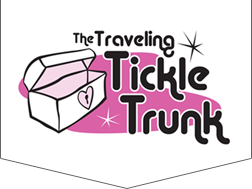Lying about Lube

I know you’re probably getting sick of me picking apart Gwyneth Paltrow’s site, Goop, but I just have to do it again. I was reading some information today about lubricants and that led me back to Gwyneth and her terrible page on the topic. Lubes are something that people get very confused about because there’s a lot of really bad information floating around out there. I thought it was important to clarify some of the things on this page, which is, sadly, filled with lies. It’s a question and answer with Dr. Maggie Ney who is not a medical doctor but rather a naturopathic doctor. She claims to be an expert in hormones but she sure doesn’t know anything about lube. Here’s are the blatant lies in this piece.
Lie #1 – The FDA does not regulate what goes into lubes
Not true. In fact just a few years ago, the FDA caused a huge disruption in the sex industry because they began to strictly control lubricants and required all companies marketing products as personal lubricants in the USA to submit their ingredients and their packaging.
Lie #2 – Ingredients in mass marketed lubes are toxic.
Ney says that glycerin, propylene glycol, and parabens are toxic. Toxic has become a meaningless word but Paltrow and her experts love it. In the strict dictionary definition, ‘toxic’ means poisonous. These ingredients are not poisonous. They have been studied for safety in the body and can legally be put into lubes in Canada in specifically defined amounts. While ‘Dr’ Ney is correct that these three ingredients cause some negative effects for some people, such as dryness and ph changes leading to bacterial overgrowth, they are not toxic.
Lie #3 – Petroleum and chlorhexidine gluconate are common in lubricants. Petroleum is exceedingly rare in lubricants now and I’ve never seen one containing chlorhexidine gluconate (an antiseptic and antibacterial). Apparently some types of KY Jelly have chlorhexidine gluconate. None of the lubes we sell have these ingredients and I’m not aware of them in any of the other major brands.
Lie #4 - When it comes to lube, if it is safe to eat, it is generally safe to apply.
This is totally wrong and very dangerous. The digestive tract is completely different than the vaginal canal and the anal tract. Ney says this herself in the article but then says that anything you can eat is safe to use as a lubricant. What????? Generally, it’s a very bad idea to put any food substance into the vagina. Foods, particularly those with sugars in them can provide food for bacterial overgrowth. She recommends only using natural food oils as lubricants but provides no evidence that this is safe. Why? Because although a lot of people now are advocating the use of coconut oil, olive oil, and sweet almond oil among others as lubes, there is absolutely no research that shows whether this is safe or not. We do know that just because something is natural, does not necessarily mean that it is safe.
Lie #5 – “Parabens have anti-androgen (anti-testosterone) properties and may contribute to male-factor infertility by affecting sperm count and sperm motility. Parabens have also been associated with the rise in prostate cancer. Testosterone levels can also be reduced with exposure, which contributes to reduced libido, erectile disfunction (sic), and loss of muscle mass.”
While there is evidence that parabens, in large amounts, can be endocrine disruptors, the rest of these claims are sweeping generalizations extrapolated from small amount of research. There is no evidence to support any of these claims. It’s wildly irresponsible to scare people about their health – particularly because parabens are in a lot of commercial products so pretty much everyone has some exposure to them. Health Canada considers parabens to be safe in designated amounts – they are approved for use in lubricants.
There is actually a few bits of very good information in this piece. Most of the advice about condoms is excellent. I was nervous when she mentioned Nitrosamine as this is not a concern, however she noted that there is not enough Nitrosamine in condoms to be concerned. She did advise, though, that people use condoms that have no parabens, or glycerin in them. She failed to mention that condom manufacturers are not required to list the ingredients in the lubricant on the packaging – so avoiding those things requires a lot of research.
I also find it interesting that Ney advises people to avoid absolutely all chemicals because they are toxic but then advises that women should use synthetic estrogen to deal with vaginal dryness. Synthetic estrogen is associated with a lot of negative side effects including increased risks of some cancers – this is why women who have had cancer are advised not to use it. She does advise use of topical estrogen though which, as she correctly notes, has fewer side effects than taking it orally.
Lubes are not toxic. It’s just not necessary to be so scared about using lubricants. There are a few things in lubes that can cause problems for people and so it’s important to read the ingredients and make good choices based on how experience and your own body. But don’t stay up nights worrying that your lube is going to kill you. Lube can be a wonderful thing. The benefits of using it usually far outweigh any negative effects.

